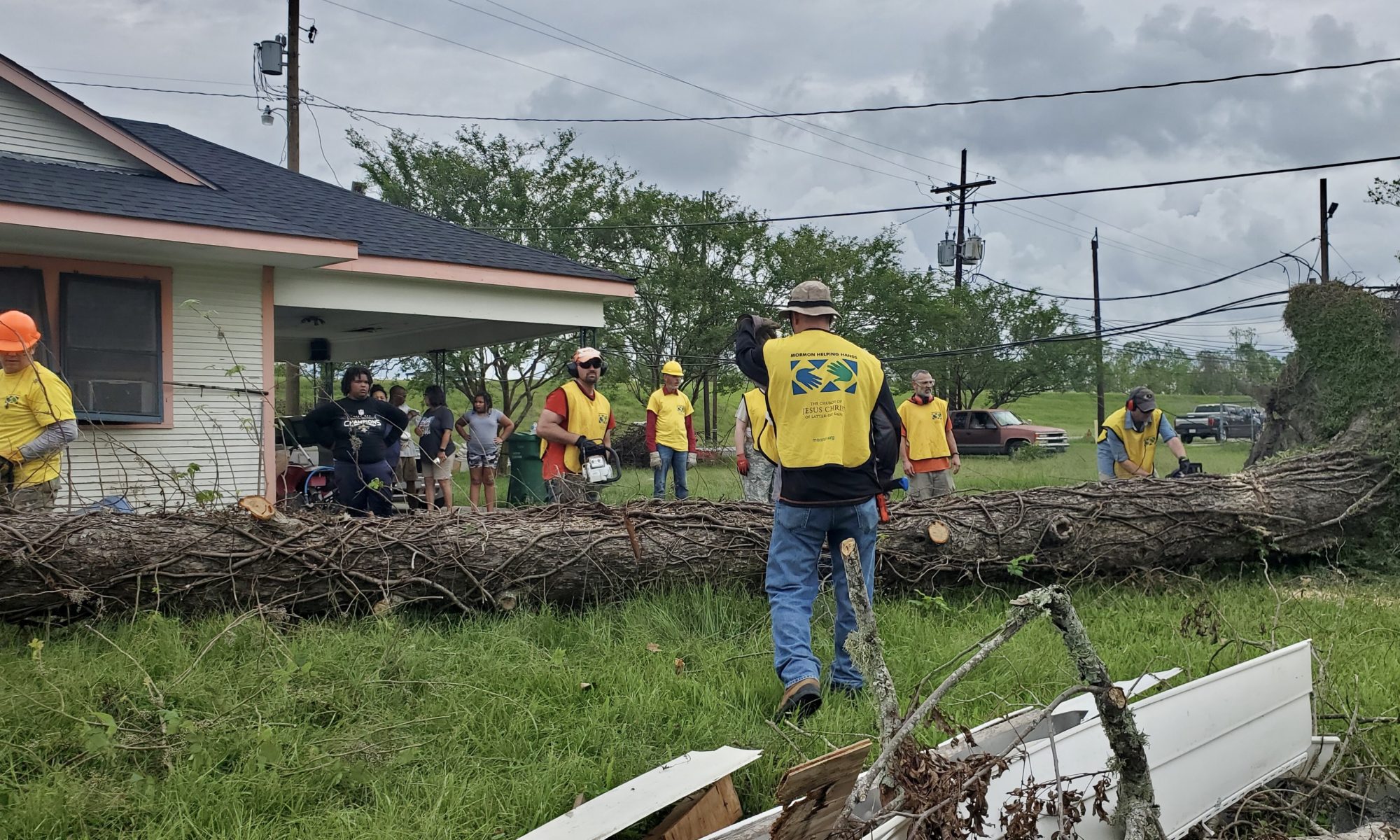By Ken Jarvis, Area Media Specialist
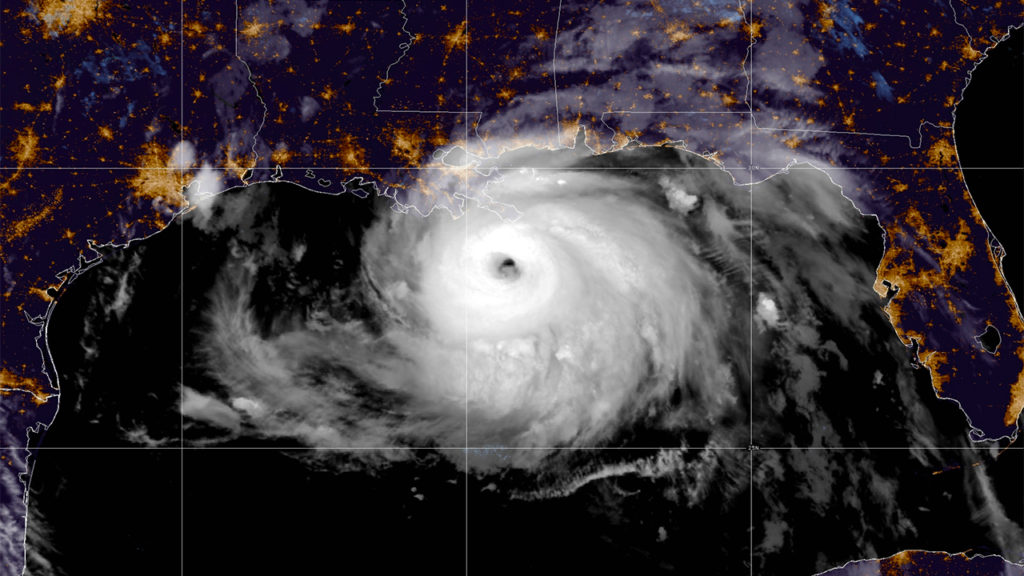
On August 29th Hurricane Ida hit Louisiana as a deadly and destructive Category 4 Atlantic storm. It was the second most damaging and intense hurricane on record to make landfall in Louisiana behind Hurricane Katrina in 2005. Ida’s maximum sustained winds at landfall were 150 mph. She tied last year’s Hurricane Laura and the 1856 Last Island Hurricane as the strongest on record in the state. Ida is also the sixth-costliest tropical cyclone on record, having caused at least $50.684 billion in damages, of which $18 billion was in insured losses in Louisiana.
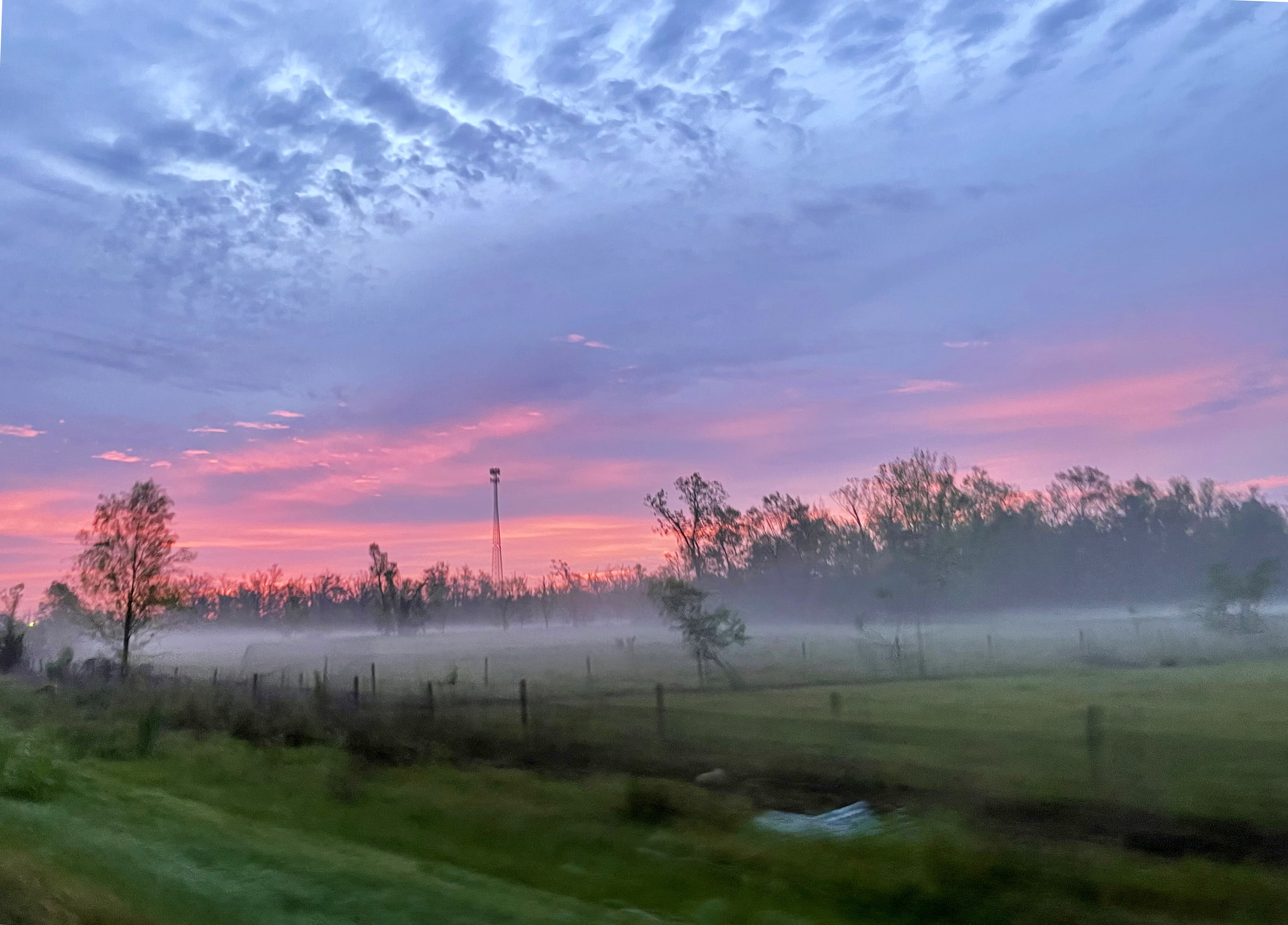
Five hundred miles away in San Antonio we were well aware of this storm but unaffected by it. However, five weeks later, carloads of local Latter-day Saint volunteers were on their way with every intention of getting deeply involved countering the destruction of this terrible storm. They were joined by members from other parts of Texas, as well as Louisiana, Mississippi, Alabama, and the panhandle of Florida.
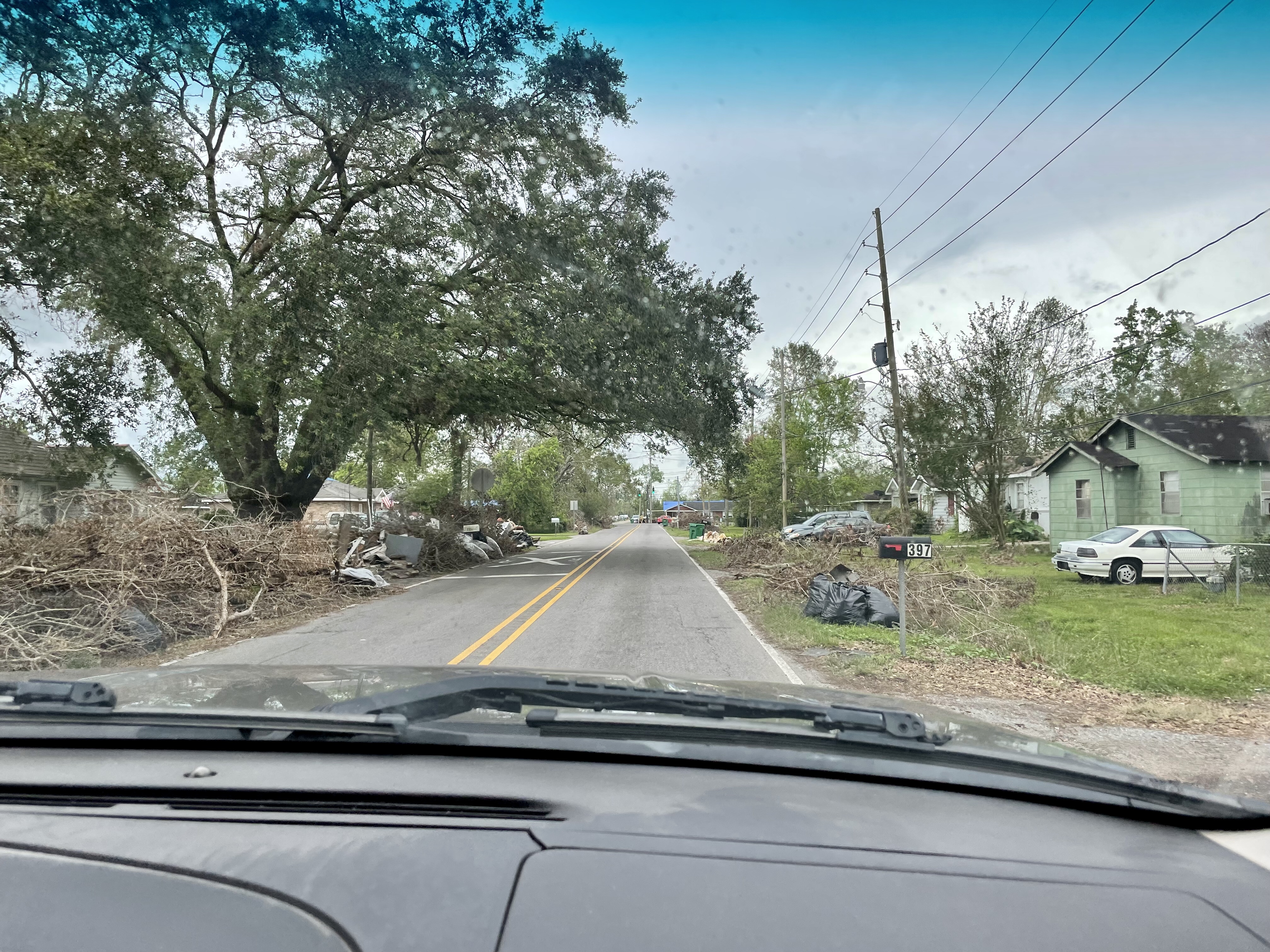
President Dallin H. Oaks, First Counselor in the First Presidency, emphasized that same weekend in the Church’s General Conference, “ Most humanitarian and charitable efforts need to be accomplished by pooling and managing individual resources on a large scale.” Although we don’t know the total number of volunteers who worked there, the people at the designated camp site numbered approximately 1,550. Members from all of the eight stakes in the San Antonio area were represented.
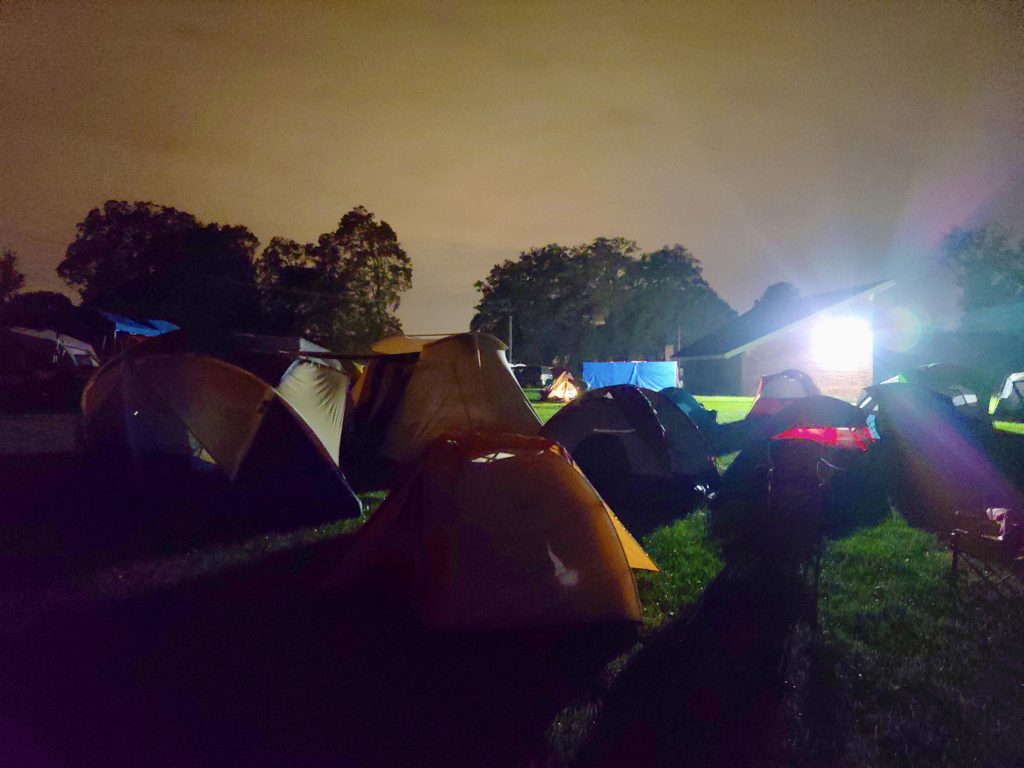
The Latter-day Saint representative to the Texas Voluntary Organizations Active in Disaster (TXVOAD), Gene Jensen, (read more about VOAD) said this was the fifth weekend in a row that large teams had been sent into the disaster area to work. “We were assigned remote areas deep in very swampy regions,” Brother Jensen said. “We saw a tremendous amount of storm damage.” Because the work was performed outside Texas, Brother Jensen was not there in his official position but as a member of the Pecan Valley Stake.
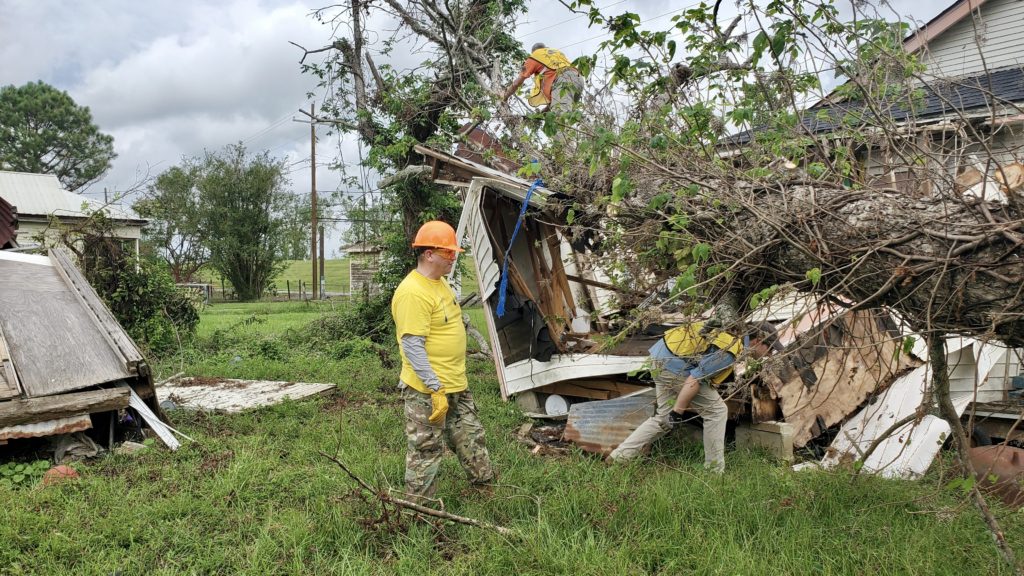
An example of the size of the projects assigned to the volunteers was the large project of helping the St John the Baptist Catholic Church in Paradis, Louisiana. This site had been worked on for several weeks by multiple teams but with little progress on clearing the large trees blown down on their 12 acre lot.
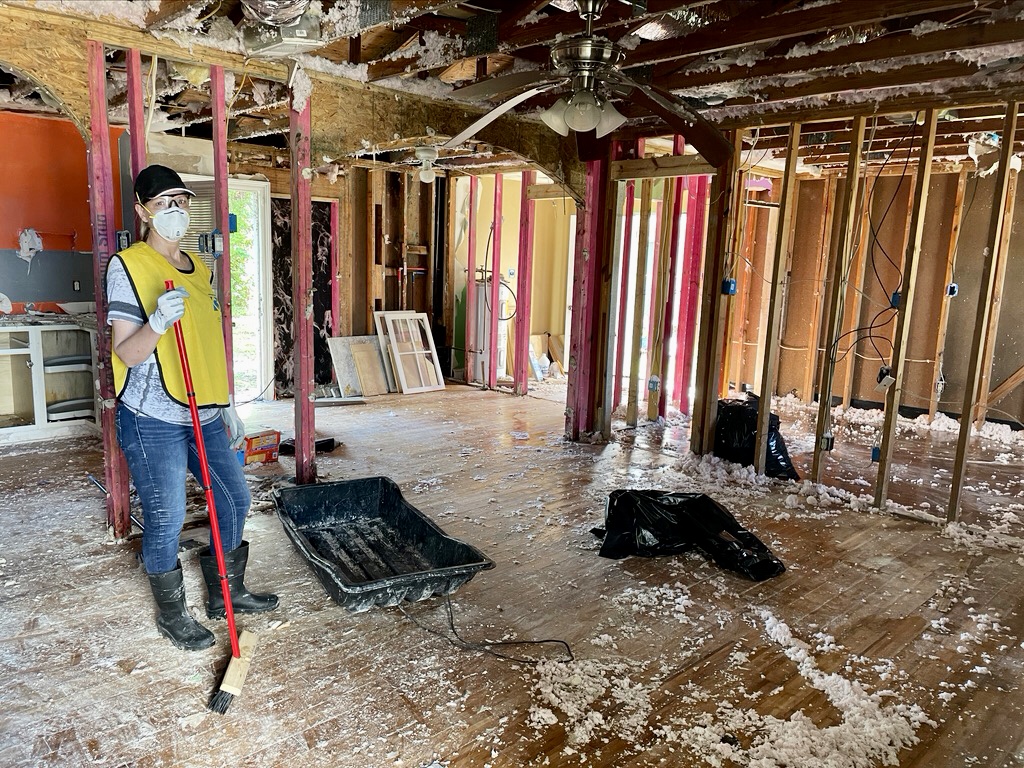
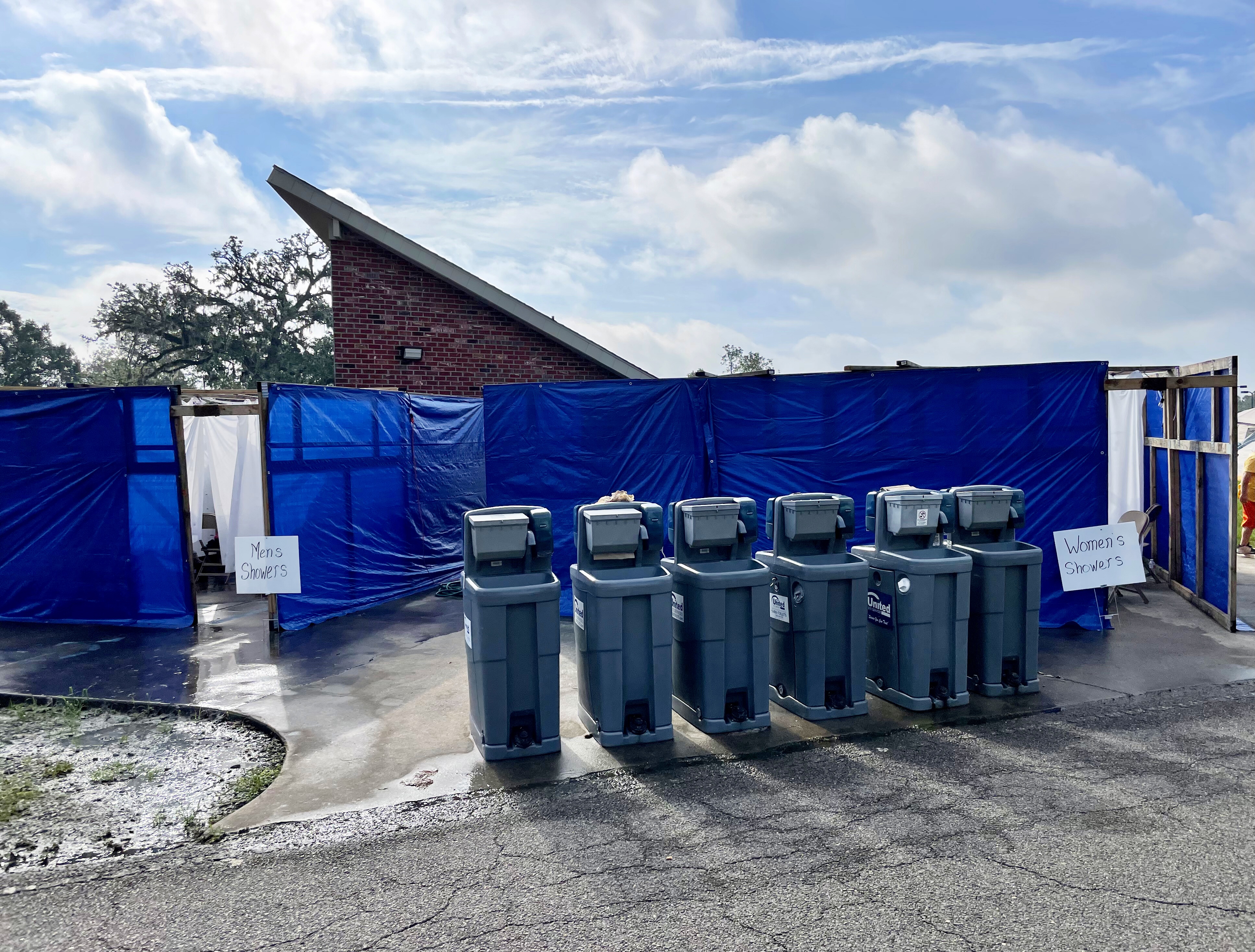
President Frank Freeman, Texas Hill Country Stake 2nd Counselor said, “We did another project early that Sunday morning and then headed down to Paradis, arriving right about 9 a.m., just as their first Mass was getting over. A second Mass was scheduled for 10 a.m. and we were concerned the noise of our sawing trees and operating equipment would disturb them.” Apparently they were unfazed. President Freeman went on to say that their Parrish Priest, Father Joseph Duc Dzien, who evacuated from Vietnam in 1975, was there to meet them. “He was a very humble man serving in a very humble parish.”
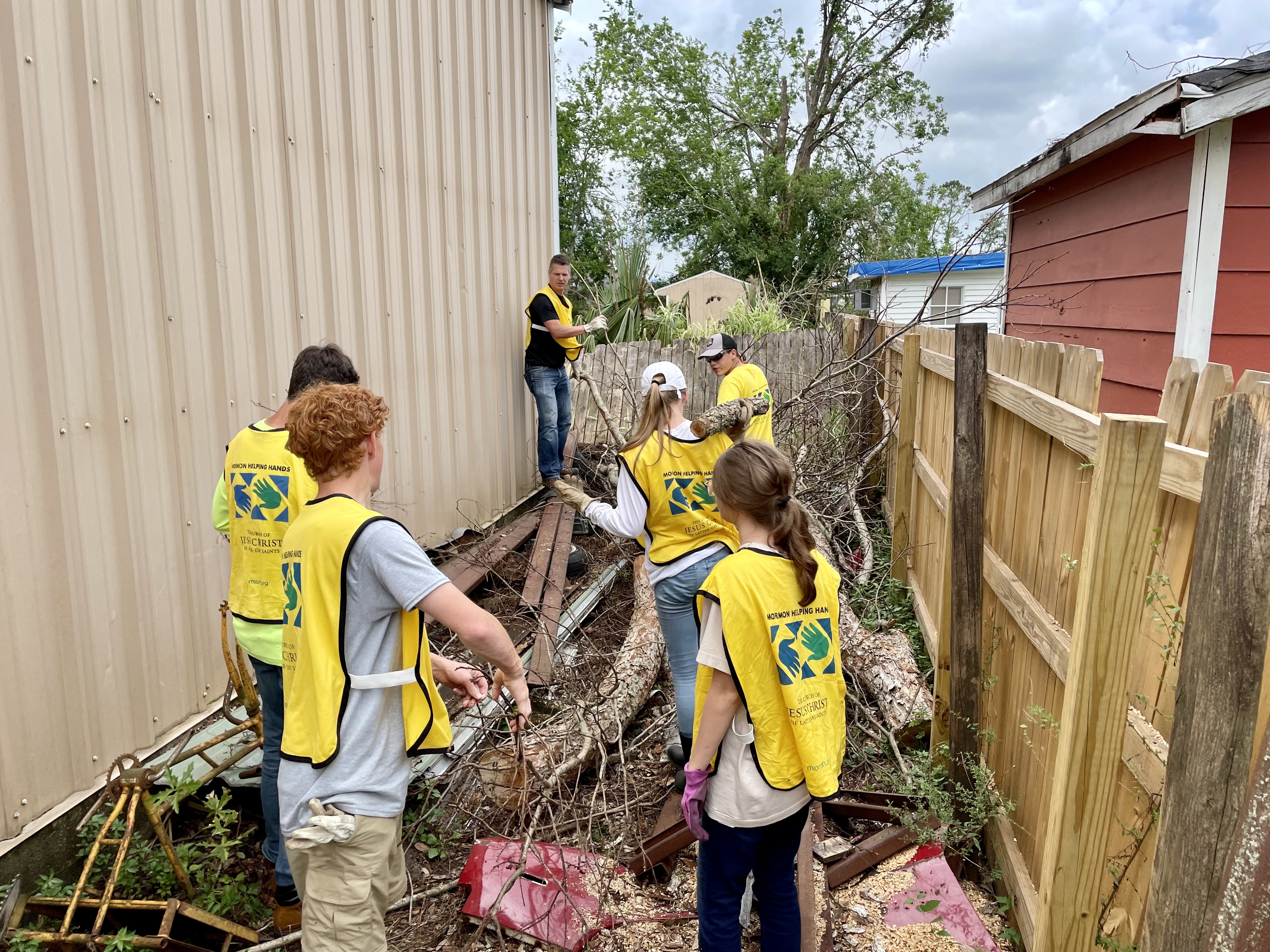
The Parrish owns 12 acres with large trees interspersed throughout. The Parrish property was home to local fairs and other community activities. Well over half of the large trees were down due to the 150 mph winds experienced during Hurricane Ida. A good number of these trees had been cut up by prior teams but were still in their original locations due to the size of the logs.
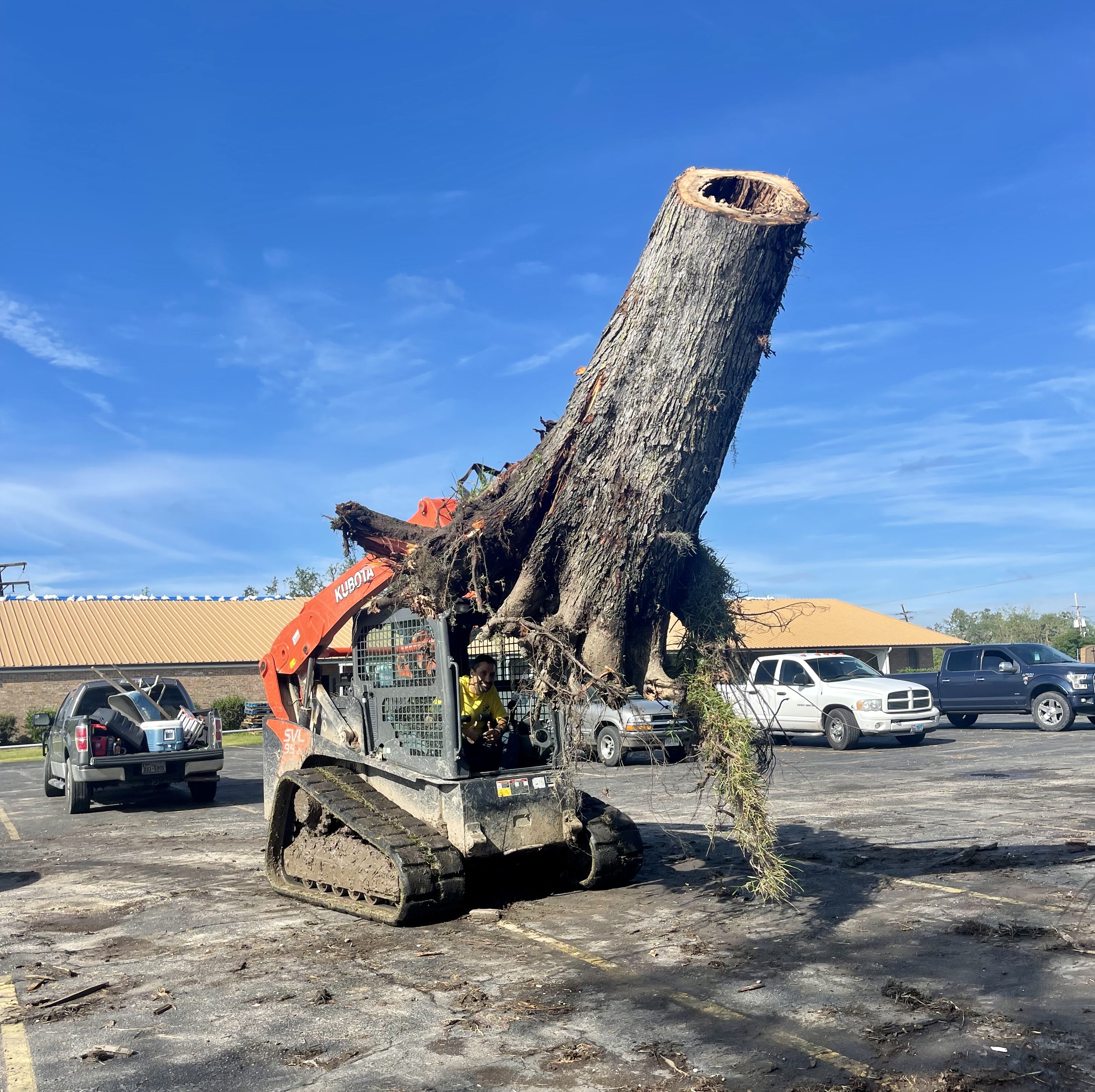
President Freeman said, “A member of our Stake not only donated his time, he donated the use of his skid steer (pictured above). With that we were able to not only cut up all the rest of the largest trees, we got all the downed trees from the acreage piled up in a single location to be removed.”
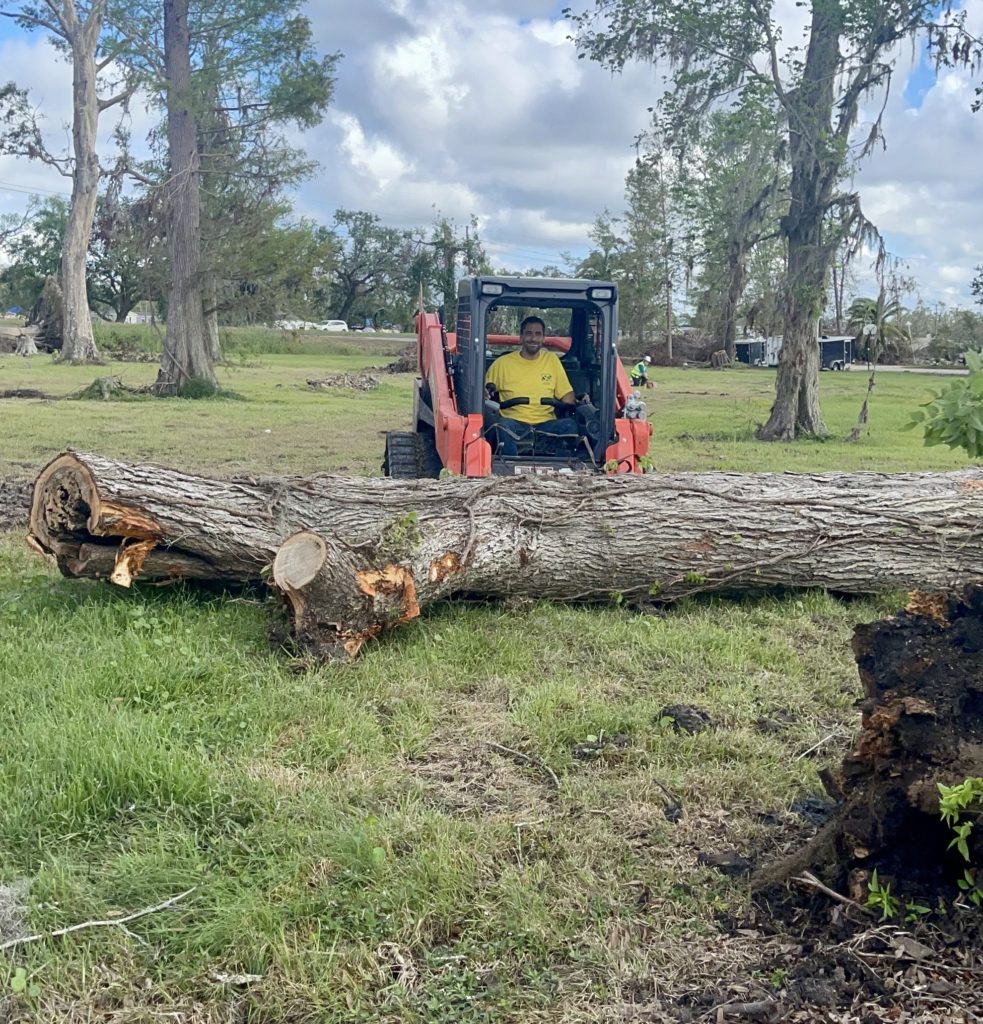
They were assisted throughout the project by the Catholic church property manager and were presented at the end of project with lunch provided by the property manager’s wife. “We learned that this was the first week since the hurricane that the congregation had been able to use their building and it was a great service to them to get the debris cut up and moved.”
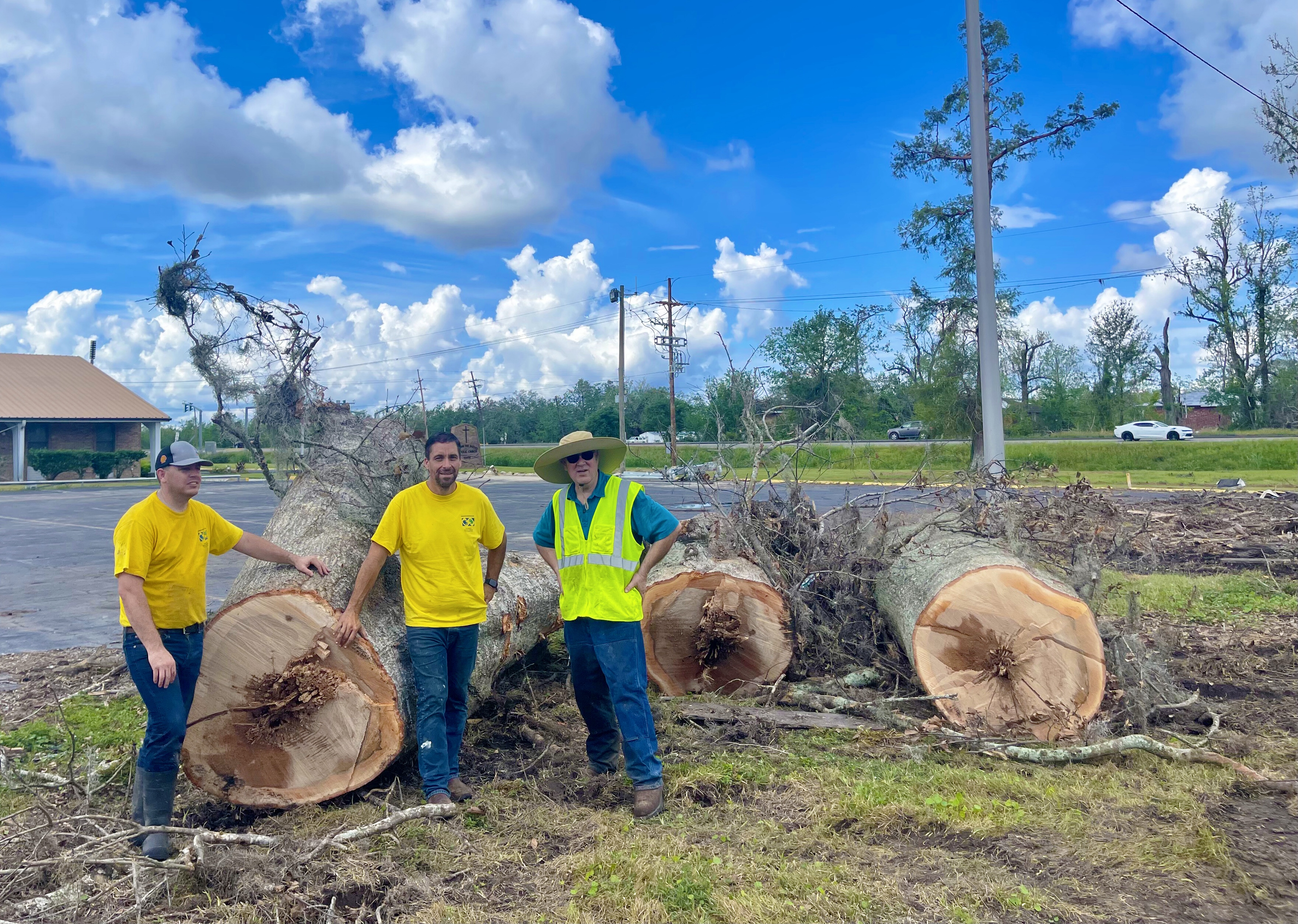
The work was not without its share of interesting experiences. President Freeman said that while working on the Parrish property a passerby volunteered to help. “We were pretty much finished at that point, but we found out he was actually looking for employment and did not have money for gas or food. He was catholic so I committed him to attend the Parrish we were working on the next week. We then helped him with his stated needs so that he could get an unexpected blessing.” President Freeman confirmed that this was, indeed, the first time he’d ever committed someone to attend Catholic services.
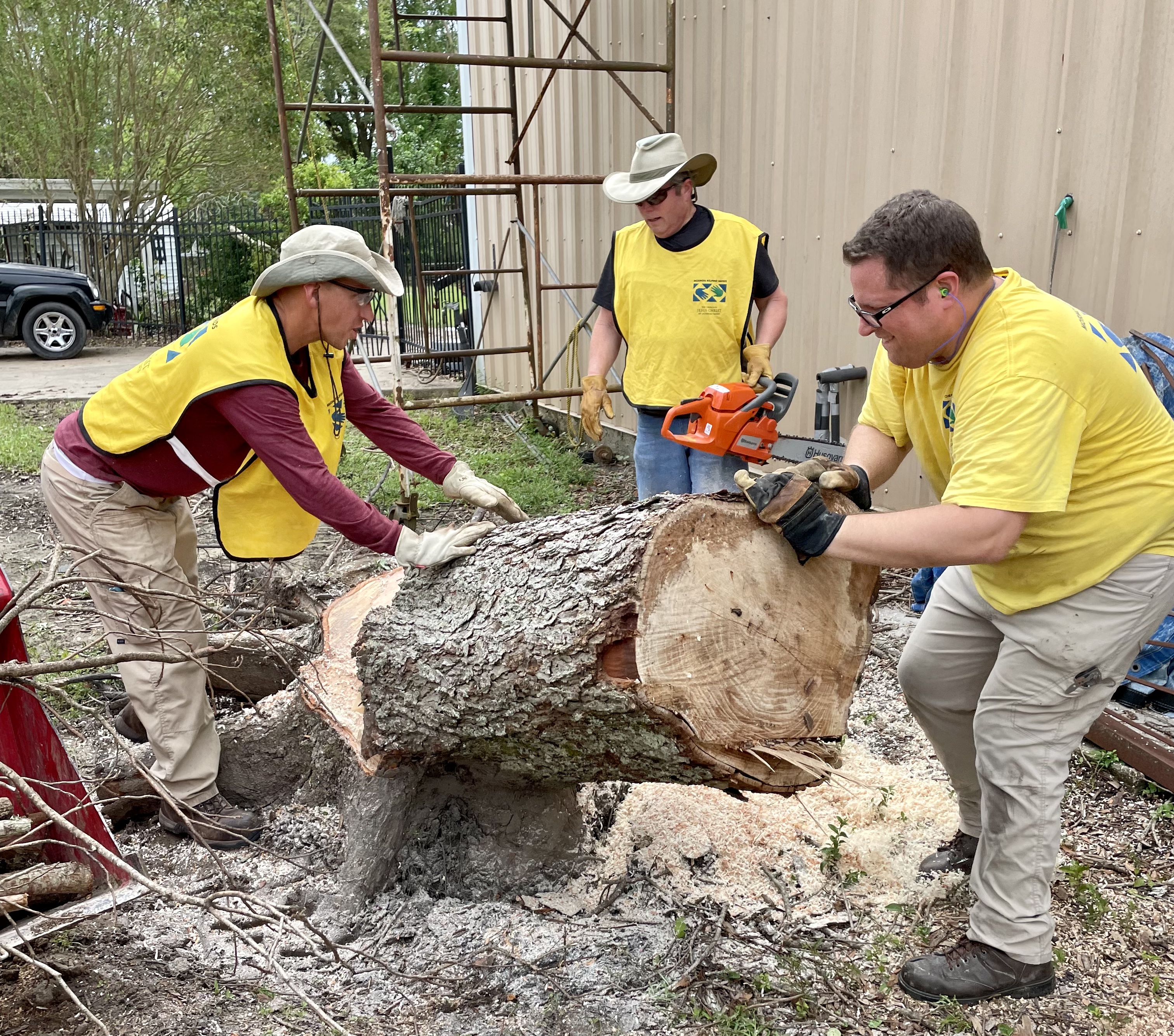
Not everyone was thrilled to have the volunteer workers in their neighborhoods, however. One was a neighbor of a project that the Hill Country Stake volunteers were working on. His cable went out during the work on the adjacent lot and he felt the workers were somehow the cause. He was not happy that he could not sit at home and watch the upcoming LSU football game. “He confronted us wanting to know which company we worked for as he wanted compensation for not being able to watch the game. We told him we were just volunteers to which he responded quite heatedly that no one volunteers today. He insisted that we were being paid by someone and he wanted to talk with them before we left.” President Freeman assured him that “No one was paying us except the Lord and in fact everyone he saw was donating considerable time and expense of their own to be spending the weekend there.” President Freeman said the man resumed hiding in his house.
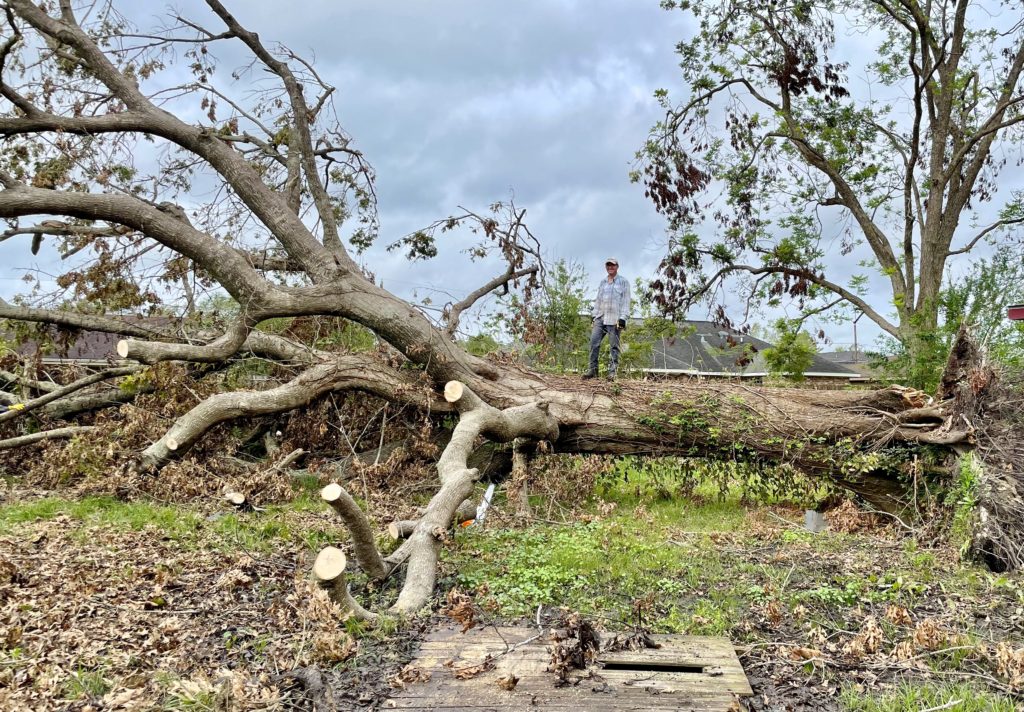
The weather was very humid and the ground was wet and muddy. “Truthfully,” said President Freeman, “Most places where we worked had high grass, a lot of brush, and many marshy areas. Snakes and alligators were a constant concern but we just moved in to do what was needed.” Fortunately most teams did not actually encounter any of the above mentioned critters.
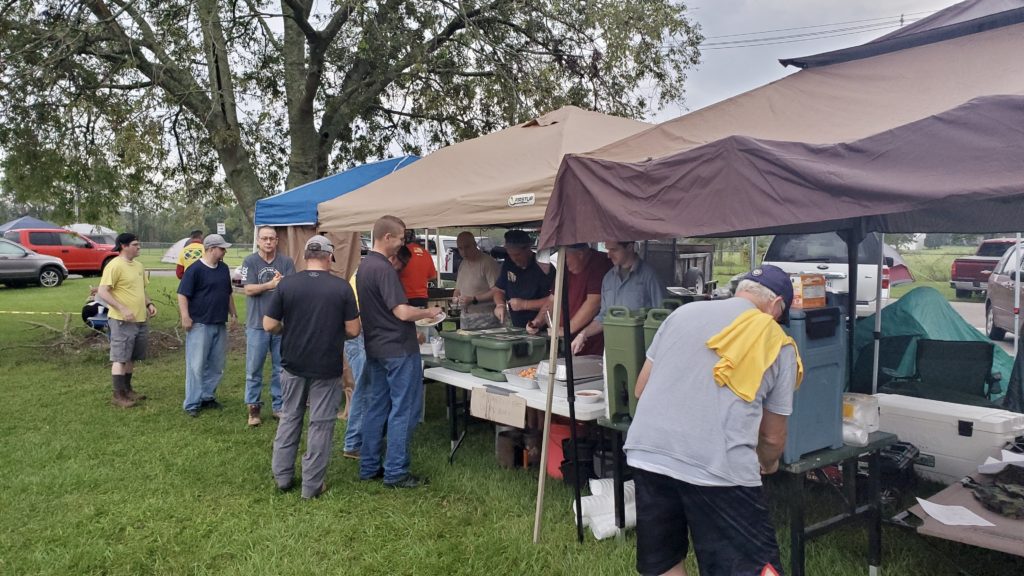
Josh Ragsdale is a member of the Bulverde Ward, Texas Hill Country Stake. For him the biggest obstacle was overcoming the trepidation of actually going. “First of all it’s a major hassle for the common American guy to make this work; getting off work early, buying supplies, getting the kid (son, Dillon) out of school early, making arrangements, and paying for the gas to go.” He continued, “Then you have the physical toll that it takes on your ‘Dad bod.’ Now back in the day chopping and hauling wood all day like a lumberjack is great. But now… not so much.”

All joking aside Brother Ragsdale shared a personal miracle. “A few days before going I twisted my knee and had a noticeable limp, but I had already committed to going. I was genuinely worried that I would be useless hobbling around the worksite after the first hour. Even while driving the eight hours over to Louisiana my knee was stiff and hurt. I was really worried. Then when we arrived and I stepped out of the truck I had no more doubts. The next morning I got up and my knee was just fine and over the two days of hard work it didn’t bother me at all. In fact, physically I worked well above my normal ‘Dad bod’ abilities. Heavenly Father definitely blessed me.”
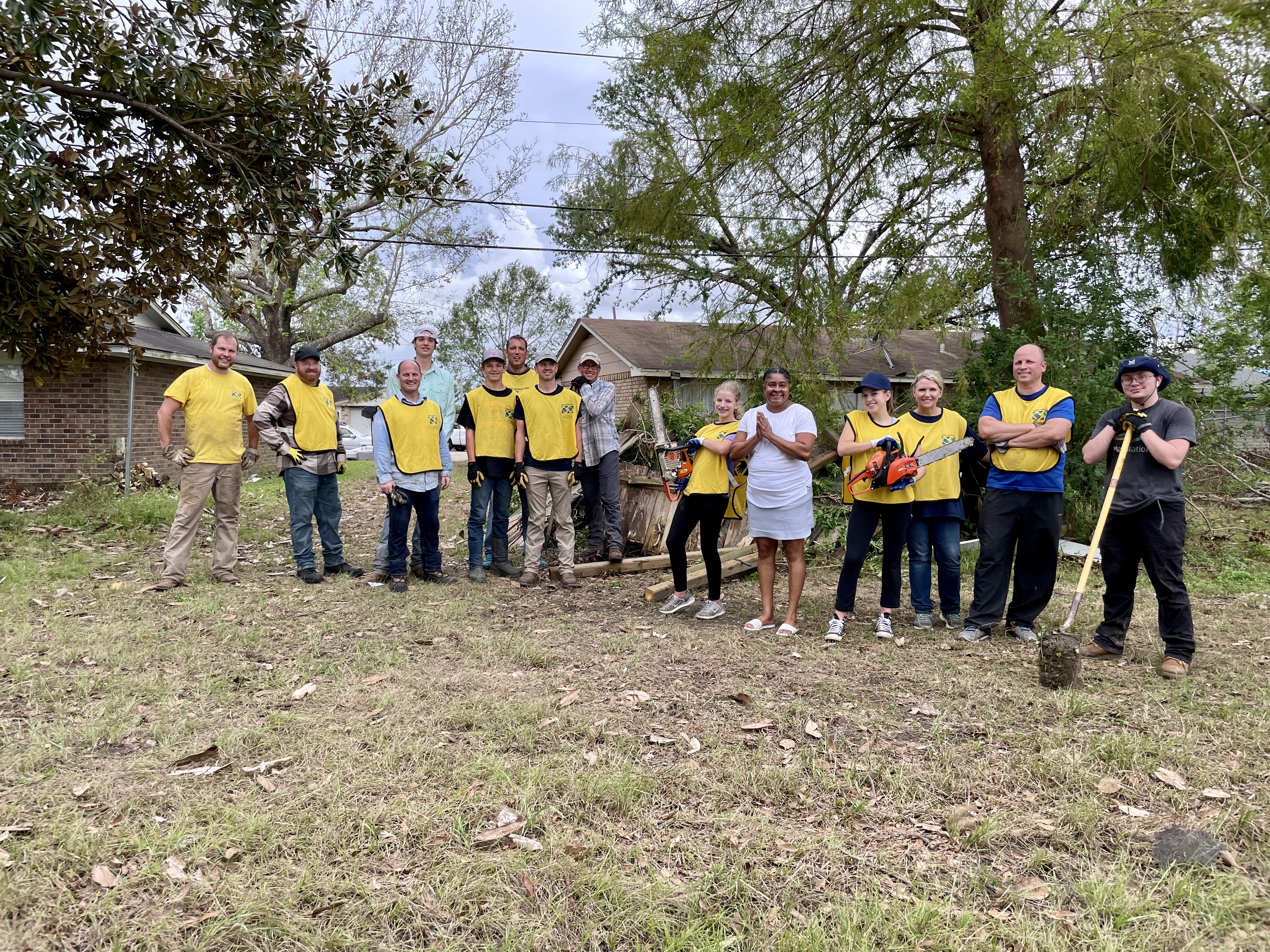
President Freeman was particularly impressed by the youth who volunteered to serve. He said that each team had at least one if not several youth. “I saw enormous growth in their perspectives as well as an appreciation for their own blessings.”
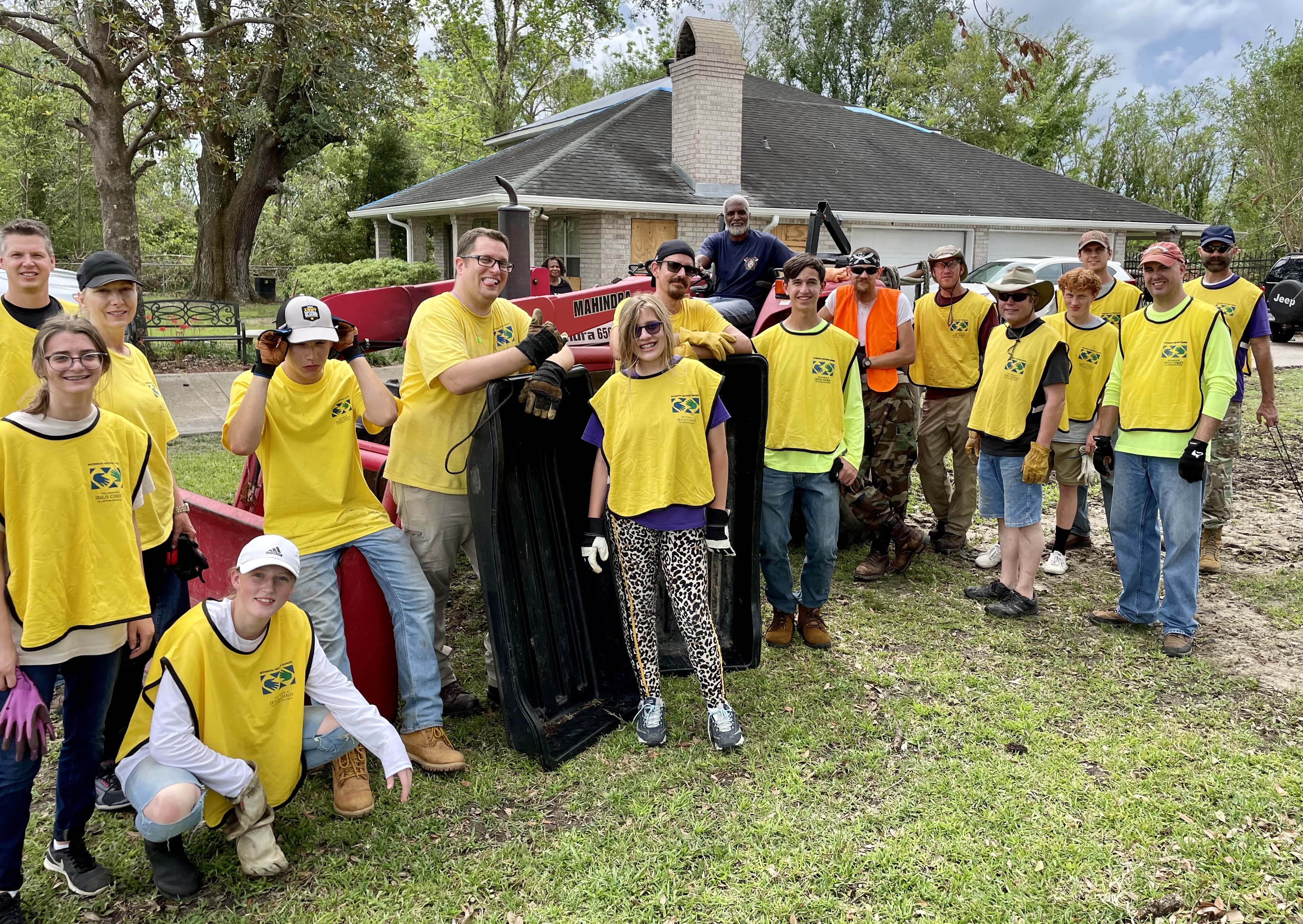
Brother Ragsdale noted that his son really stepped up to the plate. “Without a peep of discomfort and with supreme selflessness he delivered in ways I have never in my life witnessed. I watched him make countless trips with wheelbarrows full of debris, never asking for a break, or even showing signs of discomfort.” As Brother Ragsdale watched his son interact with local residents he realized his son was ready for a mission.
President Freeman said that the hardest obstacle to overcome was having to ask people to serve without being able to tell them what they were to do and where they were to go. “The Church coordinators did a great job briefing the priesthood leaders both late Tuesday evening and then again late Wednesday evening.” He added, “It was miraculous the number who volunteered by Tuesday afternoon without anything other than ‘we need your help and we will let you know later what you are to do.’”
Mike Chatterton, a Cibolo Valley Stake Team Lead, said his teams worked a total of 14 hours over the 2 days (238 man hours) and closed out a total of 7 work orders. “We had some really great opportunities to help others not only with our service, but by reminding them that their Heavenly Father will help them when they need it.”
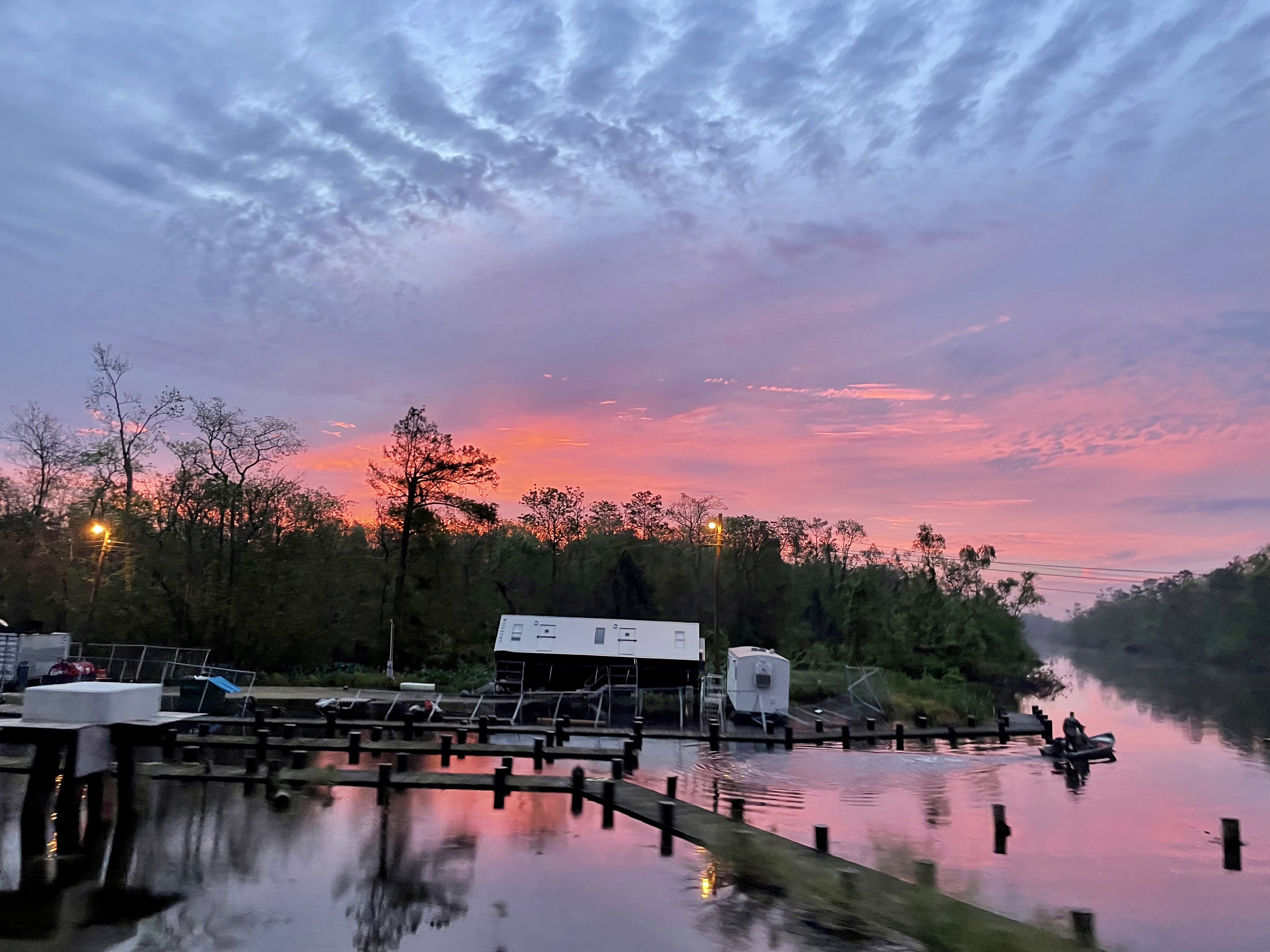
“…Even so will I fulfil—I will fight your battles.” D & C 105:14
